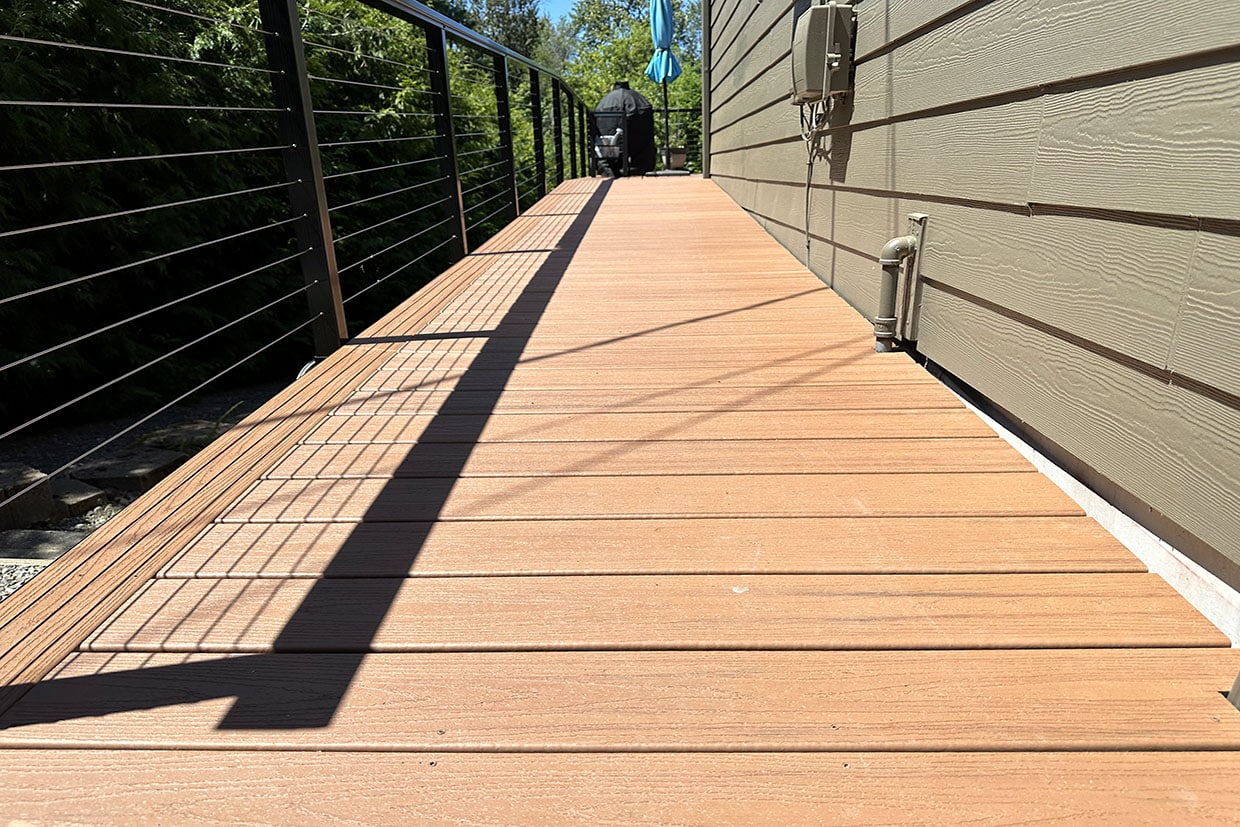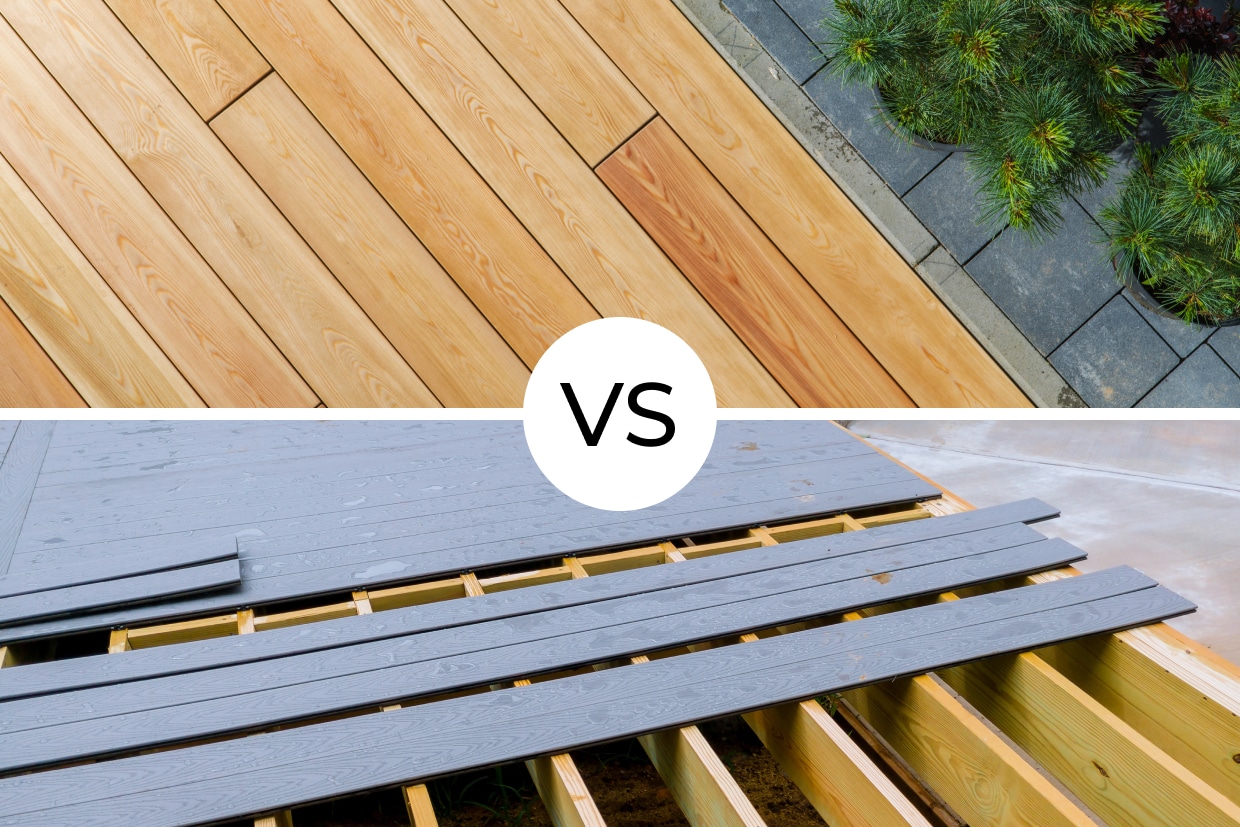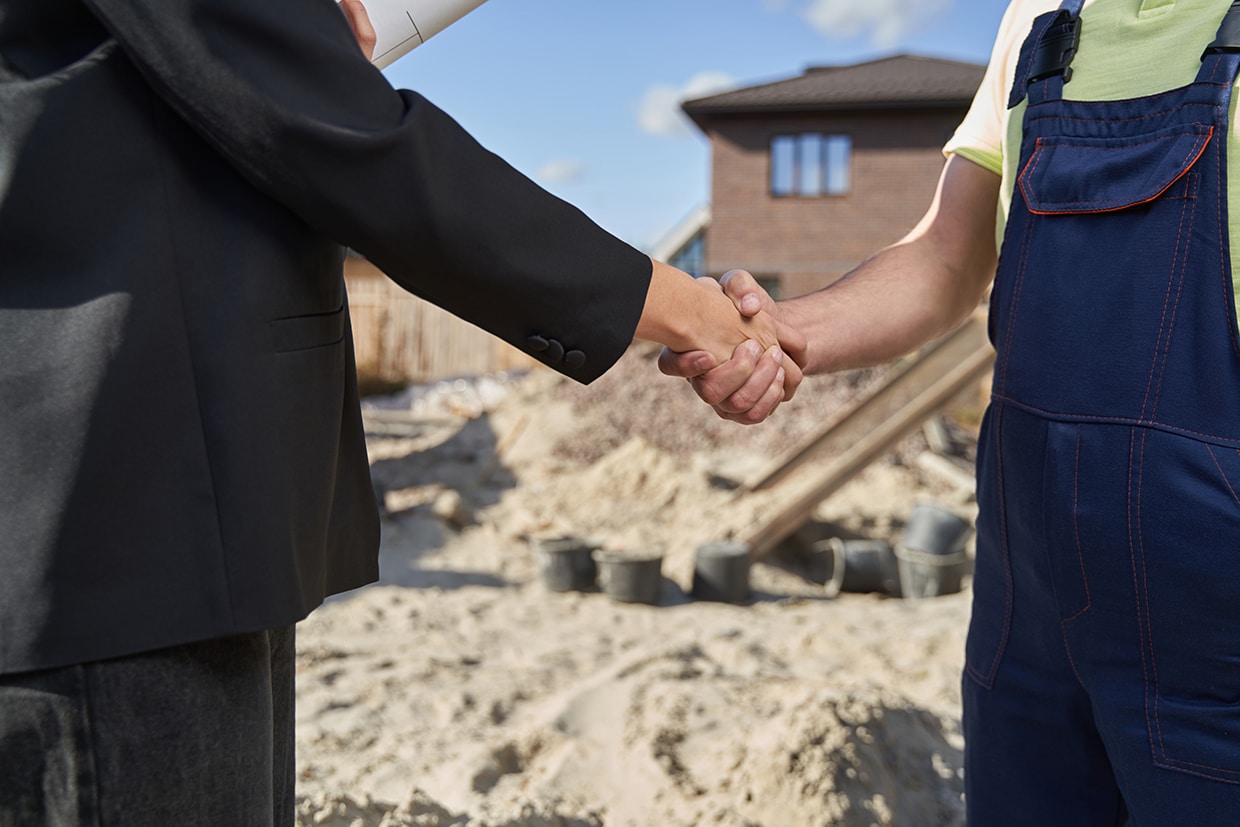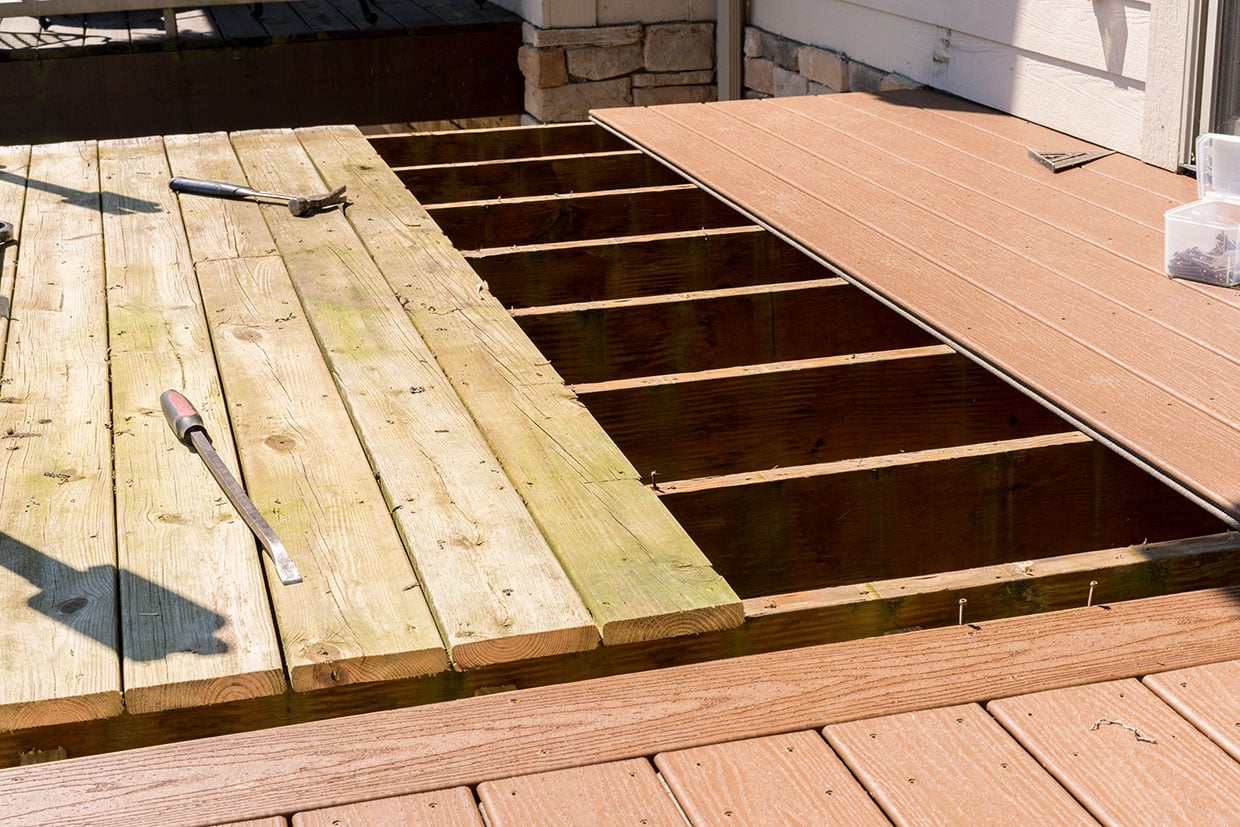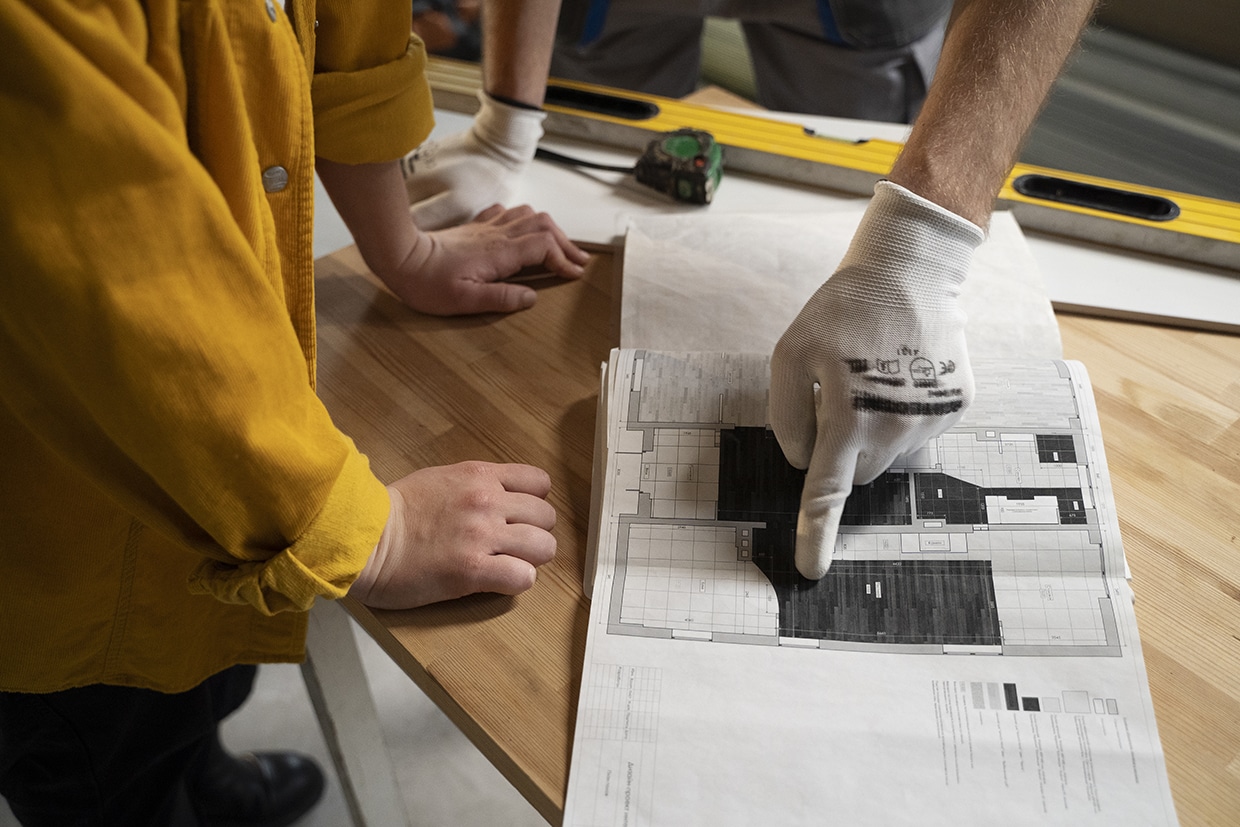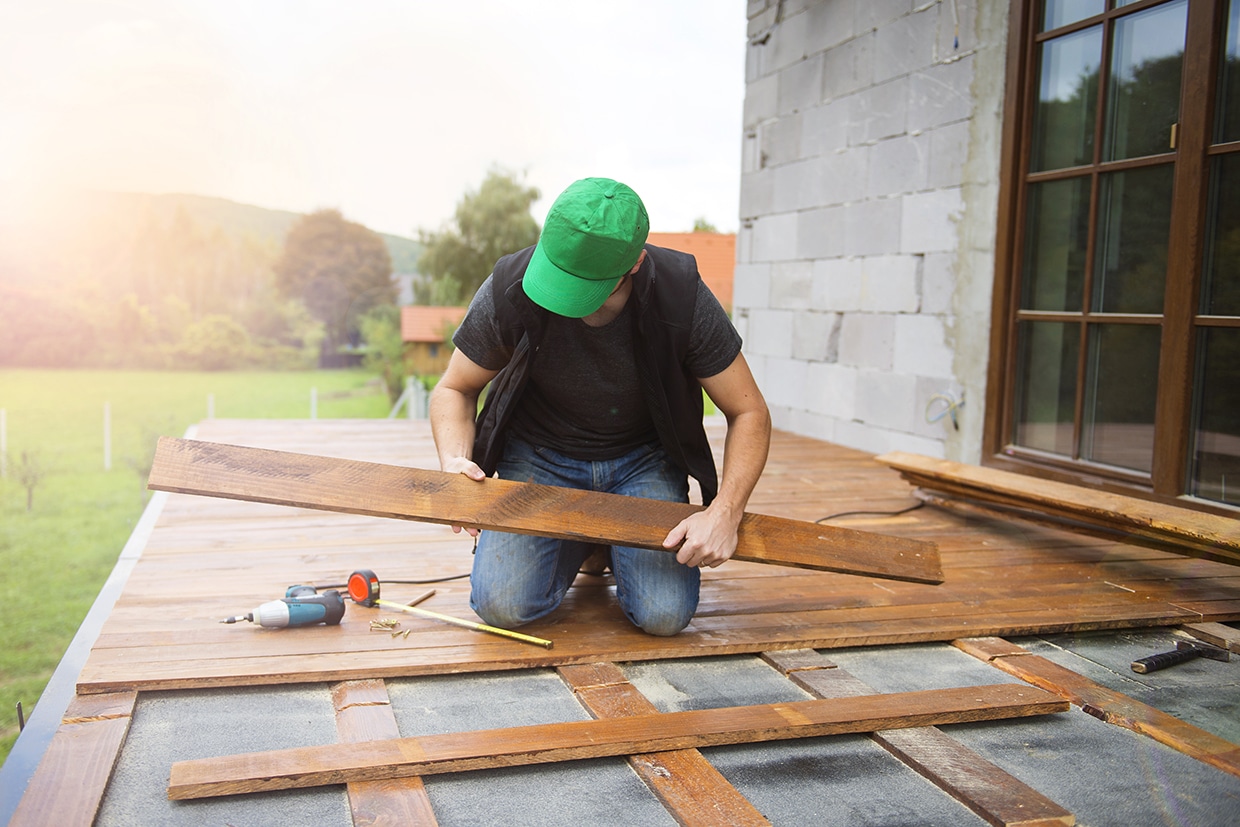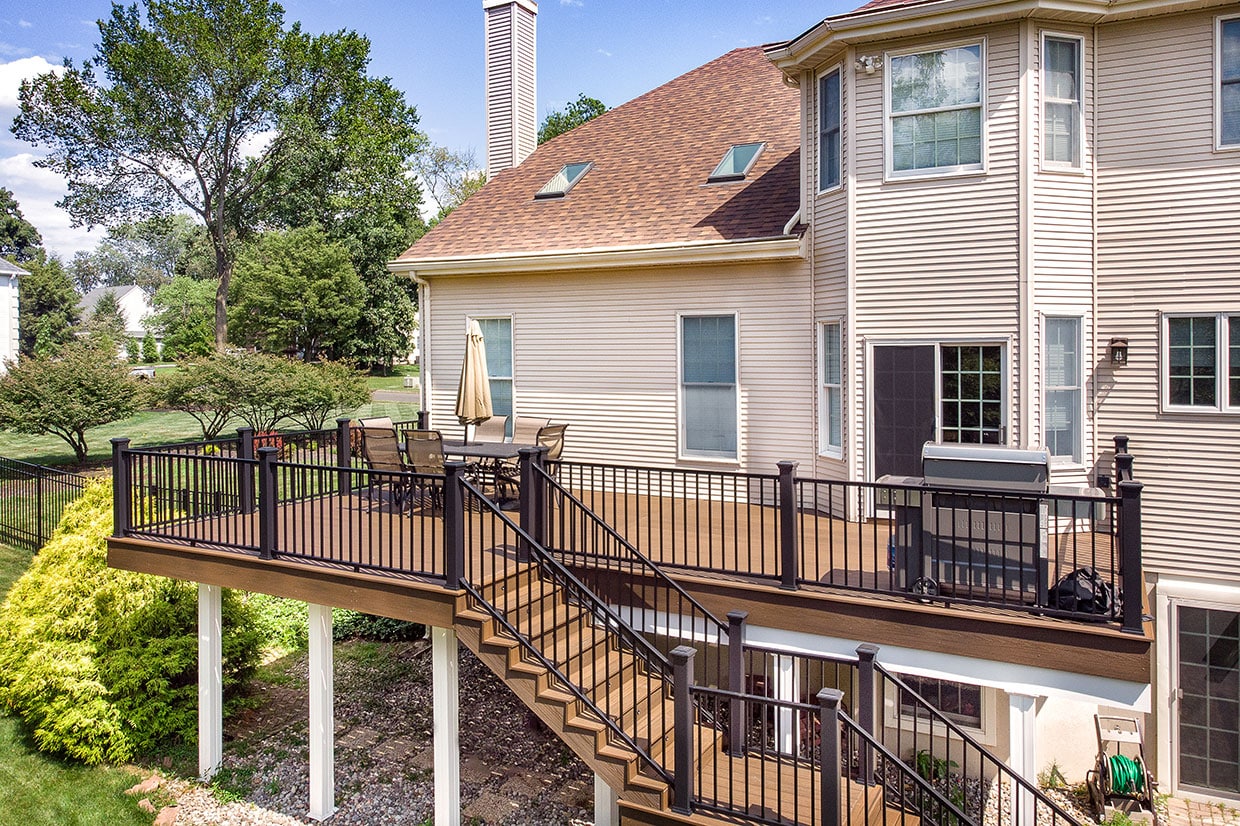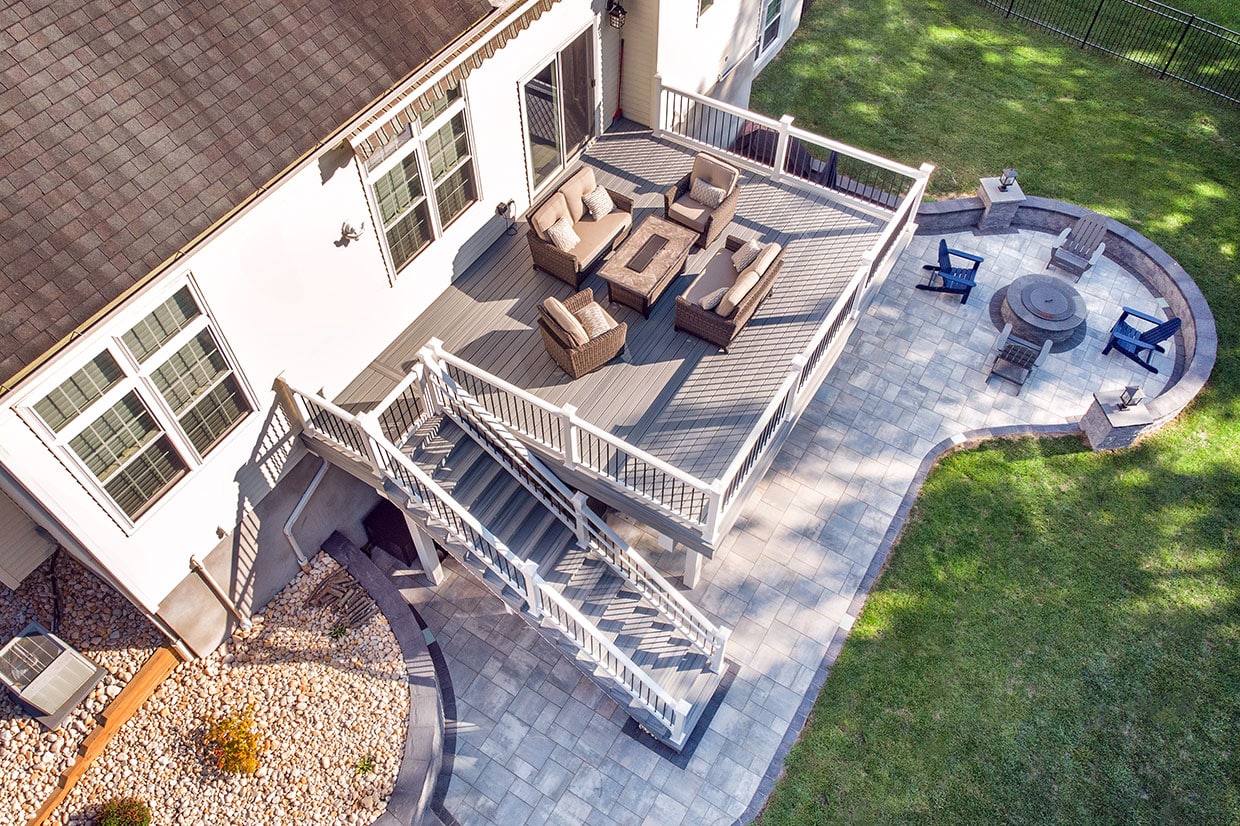Best Deck Materials: A Practical Guide to Wood vs. Composite
When it comes to planning your outdoor deck, there’s a pivotal decision that stands out above all others: selecting the best deck materials for your deck flooring. At Olympic Decks in Seattle, Washington, we understand that this choice can significantly impact the longevity, aesthetics, and overall performance of your deck, especially in our unique Pacific Northwest climate.
In deck construction, we commonly use pressure-treated wood lumber for the critical understructure, including posts, beams, and joists. This sturdy foundation provides the structural integrity that your deck relies upon.
However, when it comes to the visible surface of your deck, the decking material itself, you have a variety of options. The 2 most prevalent materials for deck flooring are pressure-treated wood, and composite (a blend of wood fibers and plastic). In this blog, the experts at Olympic Decks will share everything you’ll need to know to choose the best material for your deck.
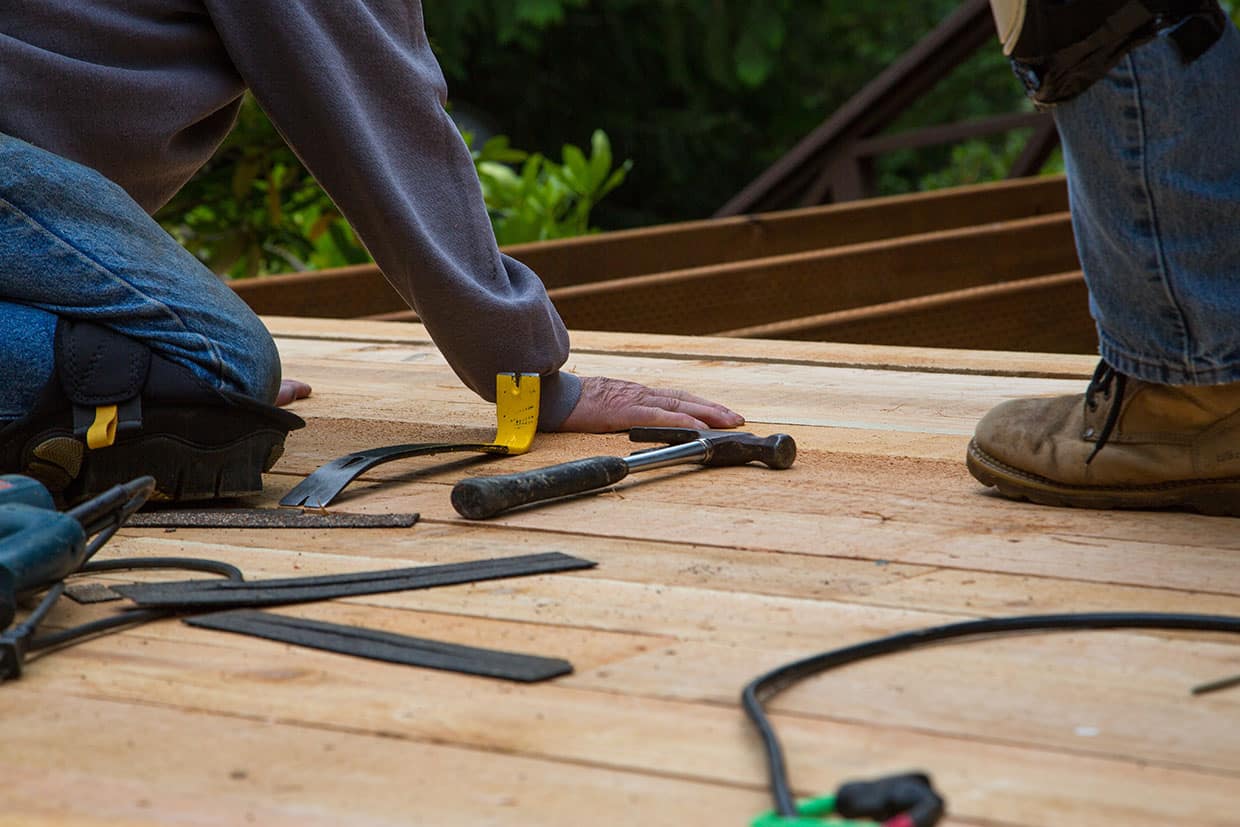
Wood Decking in Seattle: A Natural Choice
In the picturesque city of Seattle, where the natural beauty of the Pacific Northwest meets urban living, the choice of decking materials plays a crucial role in creating outdoor spaces that seamlessly blend with the local aesthetic. Wood decking, with its traditional appeal and compatibility with the region’s unique charm, stands as a time-tested favorite among homeowners in the Emerald City.
Natural Wood-Suitability and Tradition:
Wood decking holds a special place in the hearts of Seattle residents. Its warmth, natural texture, and timeless appearance align perfectly with the Pacific Northwest’s love for all things rustic and organic. The traditional look of wood decking effortlessly complements the lush greenery and scenic landscapes that define the Seattle experience.
Selecting Weather-Resistant Wood:
In Seattle’s climate, where rain and moisture are familiar companions, not all wood is created equal. To ensure the longevity of your deck in the face of damp conditions, it’s vital to choose weather-resistant wood species suitable for the region.
Among the top contenders are cedar and redwood, prized for their natural resistance to rot and decay. These woods not only withstand Seattle’s moist environment but also add a touch of elegance to your outdoor space.
Pressure-Treated Wood Decking:
Pressure-treated wood decking, often crafted from softwood species like hemlock, fir, or pine, is the classic choice for many homeowners in Seattle. Here’s a closer look at the pros and cons:
Pros of Wood Decking:
- Cost-Effective: Pressure-treated wood is budget-friendly, making it an attractive option for those looking to save on costs.
- Accessibility: It’s readily available at local lumberyards and home improvement centers.
- Ease of Installation: Installing pressure-treated wood decking is relatively straightforward, making it a suitable choice for DIY enthusiasts.
Cons of Wood Decking:
- Splintery: Pressure-treated wood can be prone to splintering over time.
- Maintenance: Regular maintenance, including staining and coating every two or three years, is necessary to preserve its appearance.
- Lifespan: It typically has a shorter lifespan compared to some other decking materials due to susceptibility to decay and rot.
Premium Wood Decking:
For those seeking an elevated deck experience, premium wood decking options like redwood, or exotic hardwoods such as teak or ipe offer a touch of luxury. Here’s what you need to know:
Pros:
- Natural Beauty: Premium woods showcase the natural beauty of wood, providing a look and feel that other materials can’t replicate.
- Availability: While exotic woods may require ordering from specialty lumber dealers, they’re accessible for those seeking the extraordinary.
Cons:
- Maintenance Intensive: Regular maintenance, including cleaning and restaining, is crucial to keep the wood looking its best.
- Long-Term Costs: Factor in the cost of refinishing over the deck’s life span when considering premium wood decking.
- Decay Susceptibility: Wood decking, even the premium varieties, may need replacement sooner than other materials due to potential decay and rot.
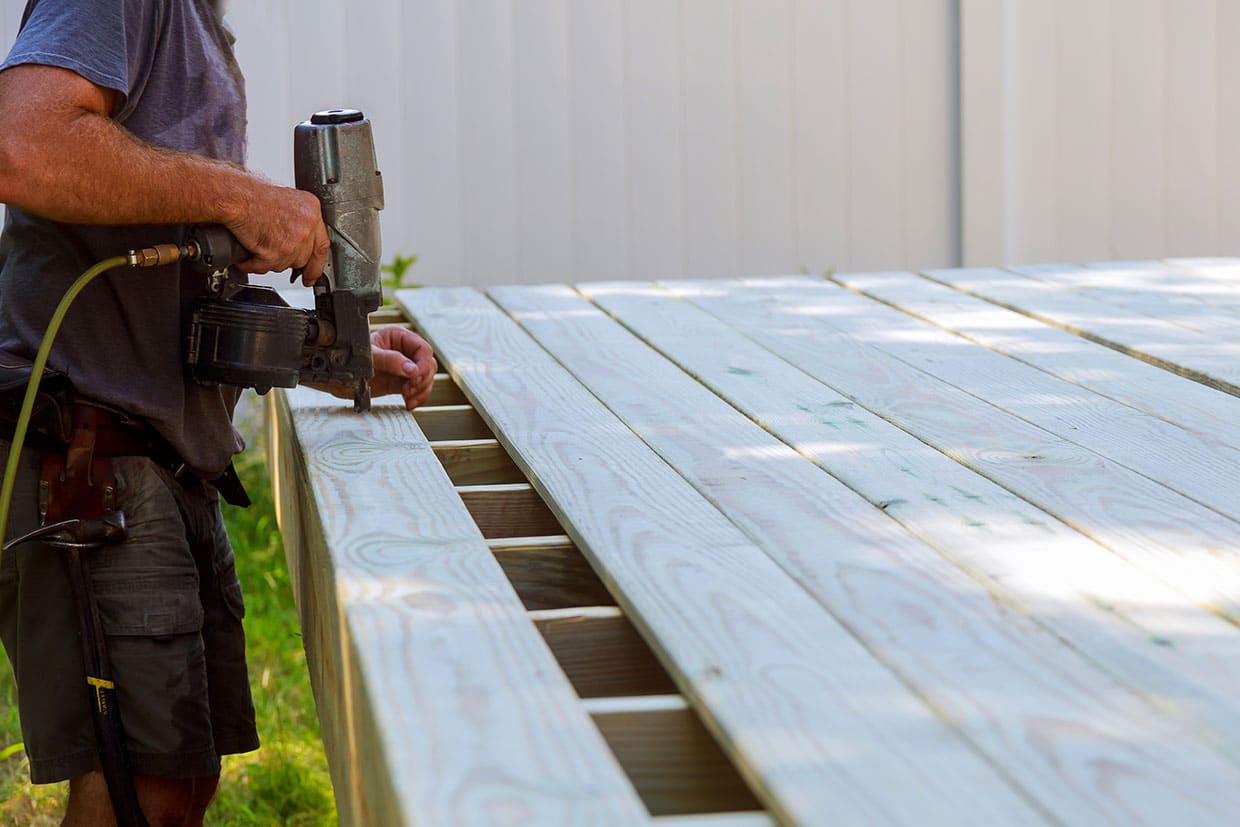
Cost Considerations of Natural Wood Decking:
When it comes to cost, the choice of decking material can significantly impact your project’s budget. Let’s get into the cost dynamics:
- Pressure-Treated Wood: When we talk affordability, pressure-treated wood takes the crown as the most budget-friendly option for decking. It’s the go-to choice for those looking to maximize cost savings while achieving a classic look. Not only is the decking itself cost-effective, but pressure-treated wood also shines as the most economical choice for non-decking components like stairs, guards, and rails.
- Redwood Decking: If you’re leaning towards the timeless elegance of redwood decking, you can expect a cost that may be on par with wood-composite materials. While it’s a step up in terms of aesthetics and resistance to decay, redwood strikes a balance between cost and quality, making it an appealing choice for many Seattle homeowners.
- Exotic Hardwoods: For those seeking the pinnacle of luxury and natural beauty, exotic hardwoods like teak or ipe can make a stunning statement. However, it’s essential to be prepared for a higher price tag when opting for these premium woods. Exotic hardwoods are often associated with a more significant investment, ensuring a deck that stands out as a true masterpiece.
In Seattle, where budget considerations are vital for many homeowners, the choice between pressure-treated wood, redwood, or exotic hardwoods is influenced by your financial goals. While pressure-treated wood offers unbeatable cost savings, it’s essential to balance your budget with the long-term value and aesthetics that your chosen material provides.
Whether you opt for the economical classic or the luxurious exotic, your deck project can be tailored to meet your financial objectives while reflecting your unique style. Contact Olympic Decks to learn more about our natural wood decks.
Composite Decking: The Modern Marvel of Deck Materials
In the world of decking materials, composite decking stands out as a modern marvel that brings a blend of innovation, sustainability, and low maintenance to the forefront. At Olympic Decks, we believe that understanding the pros and cons of composite decking is essential for our Seattle clientele, where eco-consciousness and ease of living often take center stage.
A Blend of Materials:
Composite decking is engineered using a mixture of high-density polyethylene and wood particles, combined with preservatives and binders. In some cases, it can be remarkably eco-friendly, incorporating leftover sawdust from furniture manufacturing and recycled plastics sourced from items like milk jugs and detergent bottles. This green aspect aligns well with Seattle’s commitment to environmental responsibility.
The Pros of Composite Decking:
- Recycled Materials: Composite decking often incorporates recycled content, making it an eco-conscious choice.
- Low Maintenance: For those seeking a deck that requires minimal upkeep, composite decking shines. It never needs staining or protective finishes, reducing long-term maintenance costs.
- Splinter-Free Comfort: If you have children or enjoy barefoot strolls on your deck, composite decking ensures a splinter-free experience.
- Rot and Split Resistance: One of the standout benefits is its resistance to rot and splitting, ensuring a long-lasting deck.
The Cons of Composite Decking:
- Aesthetic Considerations: While composite decking may mimic the look of wood from a distance, up close, it can appear different, with a texture resembling its primary ingredient: plastic.
- Higher Cost: The innovation and advantages of composite decking come at a price; it’s typically twice as expensive as pressure-treated wood.
- Color Limitations: Once composite decking is installed, changing its color can be challenging, often requiring the removal and replacement of materials.
- Joist Spacing: Many composite products require joists spaced no more than 16 inches apart. If your existing joists have 24-inch spacing, additional joists may be necessary to accommodate composite decking.
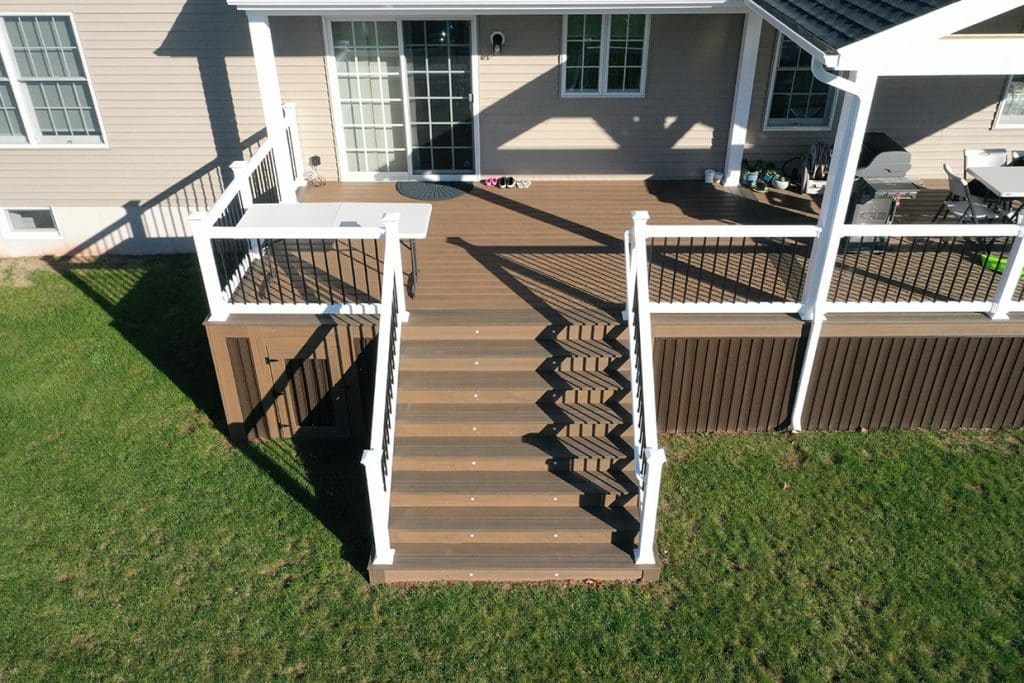
Cost Considerations of Composite Decking:
As far as cost is concerned, composite decking represents a premium investment. While it may have a higher initial price point compared to pressure-treated wood, the long-term savings in maintenance and the eco-friendly aspects can make it an appealing choice for those who value sustainability and convenience.
At Olympic Decks, we understand the allure of composite decking, and we’re here to guide Seattle homeowners in making informed decisions that align with their priorities, whether it’s sustainability, low maintenance, or the desire for a splinter-free, long-lasting deck.
While it may come at a premium, composite decking offers a modern solution that embraces the future while enhancing your outdoor space. Contact us today to learn more!
Wood vs. Composite Decks: Best Deck Materials Showdown
When choosing between wood and composite decking for your Seattle outdoor oasis, understanding the key differences can be a game-changer. Let’s take a final look at how these two best deck materials directly measure up:
Solidity:
- Composite Decking: Solid all the way through, providing durability.
- Wood Decking: Also solid throughout, offering traditional sturdiness.
Winner: Tie
Weight:
- Composite Decking: Heavier than PVC, adding stability to your deck.
- Wood Decking: Fairly lightweight and easy to handle.
Winner: Composite Decking
Rot Resistance:
- Composite Decking: Resistant to rot, ensuring longevity.
- Wood Decking: Prone to rot over time, even when pressure-treated.
Winner: Composite Decking
Installation:
- Composite Decking: Utilizes standard fasteners or special hidden fasteners for a clean finish.
- Wood Decking: Uses standard fasteners like deck screws for installation.
Winner: Tie
Cost:
- Composite Decking: Slightly more expensive than wood, but offers long-term value.
- Wood Decking: Lower upfront cost, but long-term maintenance expenses can accumulate.
Winner: Composite Decking
When it comes to wood vs composite decking, composite decking stands out. However, both composite and wood decking boast a solid construction, providing reliable platforms for your outdoor activities. When it comes to weight, composite decking is heavier than wood, offering added stability and durability.
Rot resistance is where composite decking truly shines, ensuring your deck stands the test of time. In contrast, wood decking, even when pressure-treated, remains susceptible to rot over the years.
Installation methods are relatively similar for both materials, with composite decking allowing for standard fasteners or hidden options for a sleek appearance.
In terms of cost, composite decking comes at a slightly higher initial price point compared to wood. However, it’s crucial to consider the long-term value and maintenance savings it offers, making it an attractive choice for Seattle homeowners who prioritize durability and sustainability.
Ultimately, the choice between wood vs composite decking comes down to your priorities and budget. At Olympic Decks, we’re here to assist you in making an informed decision that aligns with your unique needs, ensuring that your deck stands the test of time in the beautiful city of Seattle.
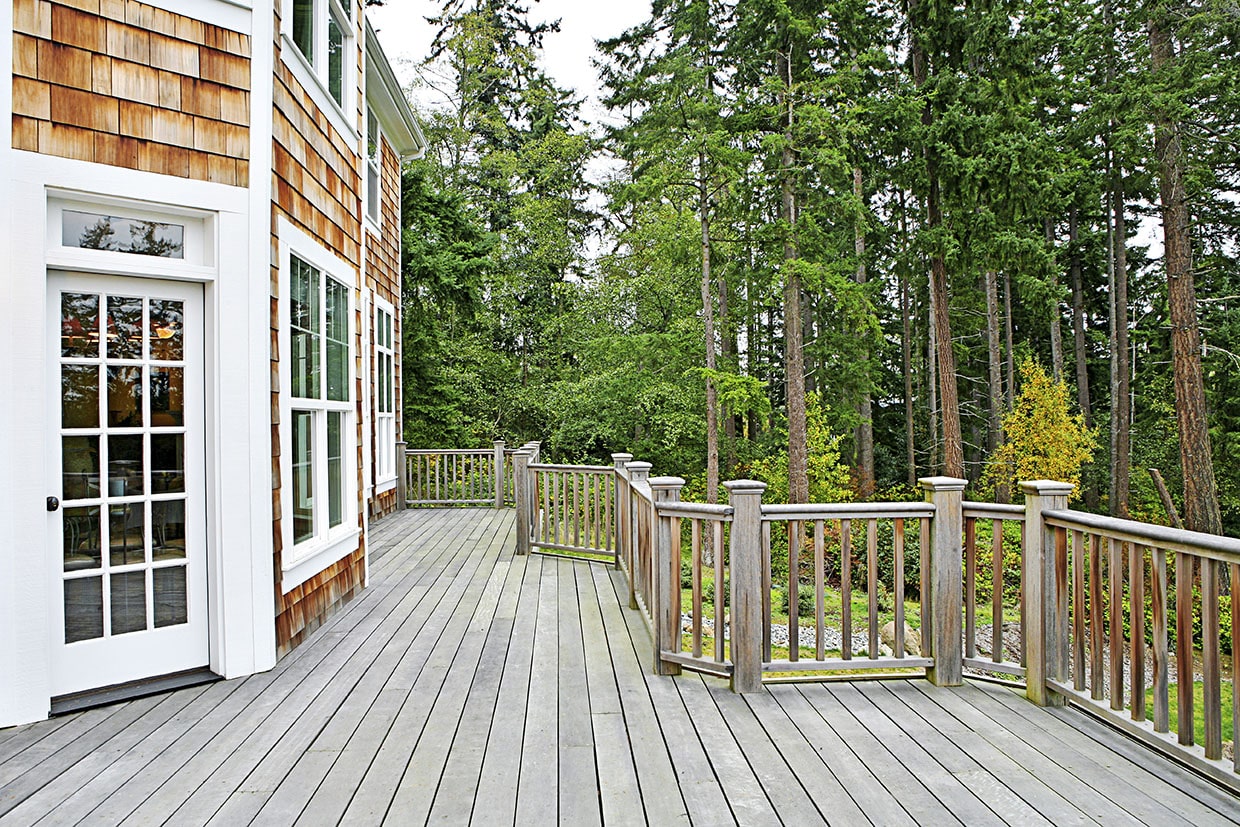
Choose Wisely: With Olympic Decks’ Best Deck Materials
Choosing the best deck materials is a significant decision that can transform your outdoor living space into a sanctuary of relaxation and entertainment. At Olympic Decks, we understand that your priorities, whether it’s low maintenance, temperature comfort, or budget considerations, are unique to your lifestyle. Let’s recap the key takeaways to guide you towards the perfect choice:
- Low-Maintenance Living: If hassle-free outdoor living is your goal, look no further than composite decking. With minimal maintenance needs, it ensures your deck remains beautiful and functional with ease.
- Cool and Durable: For those who seek comfort even under the scorching Seattle sun or amidst rain showers, composite decking stays cool and resilient, standing up to water without damage.
- Budget Matters: If upfront costs are a significant factor in your decision, pressure-treated lumber and some composite products offer lower initial expenses.
Investing in your outdoor oasis is an investment in your home’s value. We understand that selecting the right deck material can be a challenging choice. If you prioritize less maintenance and high performance, both our composite decking lines are meticulously designed to maintain their allure for years, adding lasting value to your home.
At Olympic Decks, we’re here to help you navigate this decision, offering guidance and expertise tailored to your unique needs. Whatever your preference, we’re dedicated to transforming your outdoor space into a place of comfort, beauty, and cherished moments. Your dream deck is within reach, and we’re here to make it a reality. Contact us today!

